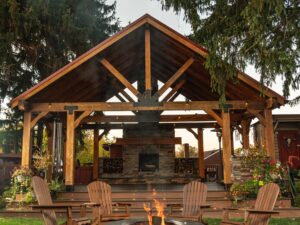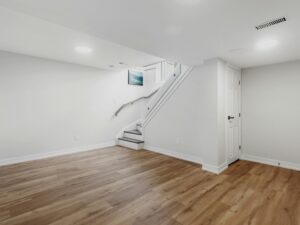Monique Johnson has her finger on the pulse of the real estate market and has helped many first-time homebuyers find their dream home. The market has changed due to the pandemic and we wondered if that meant changes to what first-time homebuyers need to know. We once again turned to Monique to provide us with her tips in the context of this market. She shared what first-time homebuyers need to plan and budget for and gave us cost-saving tips. Some may surprise you:
-
You will not love what you are going to purchase.
It’s a matter of where we are right now and the effect that the pandemic is having on the market. Be open to the possibility that you may have to buy something that isn’t your first choice. When I say that, what I mean is that instead of buying a semi-detached, you may need to buy a townhouse or a condo. If you want a detached, prices are moving so quickly every single week, and you need to look at what alternatives are available.
-
You have to know where the money is coming from.
If you need a mortgage, one of the most important conversations that you will have in this process is speaking with a trusted mortgage broker. I like using independent mortgage brokers because they have access to hundreds of lenders that have different policies when it comes to lending money.
If your situation is unique, for example, you are self-employed or on contract, your mortgage broker can align you with a lender that not only give you the best rate, but will also consider your entire situation. Standard banks generally favour people with permanent full-time jobs. We are living in a different age now, where people have various sources of income and may be working at multiple jobs. You need to work with someone that will look at your entire situation.
Some people may decide to take on a renter to help pay down a mortgage. You need to make sure you hire a law firm with experience reviewing contracts, like Substance Law based in Toronto, if you are interested in renting part of your place out.
-
Choose the right real estate agent.
The real estate agent that you choose is either going to make this process enjoyable or not. You want to work with a realtor who is going to oversee the transaction, not just someone who is going to find you a house. The realtor serves as a project manager which means that they are aligning you with the people that you need to talk to including lawyers, mortgage brokers and inspectors. You want a realtor who has these connections and has the capacity to be able to advise on a property that may need some work. That means a realtor that has some kind of construction background or has had experience in renovations to ensure that the property can remain in your budget.
The realtor should be resourceful and have a connection to a network of professionals that they rely on and trust. With a professional, you can even have access to real-time mobile home prices on the market. We are in an age where houses are sold quickly and it comes down to an appraisal and whether you are buying or selling, you want your realtor to be present. The appraisal is an independent evaluation from the banks and they will be the make or break in that sale.
If you are buying and the property is appraised at under market value, which is great, you want your realtor to be there to ensure that the appraiser isn’t missing any details. For example, an appraiser may not value upgrades in a home, but real estate professionals know that people may pay in excess of $50,000 for a renovated kitchen. An appraiser will not have a dollar amount fixed to home renovations, therefore, it’s important that your realtor is present at the appraisal appointment so that the home that you are buying, or selling is properly appraised.

-
Make sure that you have at least 1-3% of the purchase price saved.
- These savings are factored into your closing costs. The closing costs, if you are buying in the 905 (Hamilton and the Greater Toronto Area), are subject to one land transfer tax. But, if you are buying in Toronto, you are subject to two land transfer taxes (Toronto land transfer tax plus the Ontario land transfer tax) which people aren’t always aware of and they don’t factor this into their closing costs.
- You need to ensure that you have enough money for your legal fees and include this in the closing costs.
- Consider any lender fees that may happen. If you are going through an independent mortgage broker, sometimes there are fees that you may not be aware of that need to be factored into your purchase price.
- Other miscellaneous costs may come up including items that affect the title of the property. Some people [in Ontario] may pay their rent or property taxes in advance, so if they are selling in mid-year, that means that the remaining six months of the year has been paid, but once the buyer has taken possession, they now need to pay the balance of the year and pay back the money.
- Make sure that you have money set aside to pay for your move. This can be anywhere between $800-$1,000 depending on where you live.
- Factor in renovations as well. If you know that you have purchased a property that might need some TLC, make sure that you have money set aside for that. Make it part of your closing costs budget so that you aren’t scrambling afterwards.
- If you purchase a condo or a POTL (Parcel of Tied Land fee associated with some townhouses that help offset shared expenses like garbage and snow removal), you need to remember that you are going to pay condo fees and maintenance fees respectively.
-
Programs for First Time Homebuyers.
There are amazing programs available for first-time homebuyers and the government is doing what they can to help to balance the market and make it fair for people who are trying to buy a home. One program in particular will help with a down payment. The government has a program called the First-Time Homebuyer Incentive which is a share equity program. You can put down as little as 5% on a property. If you put down that 5%, the government will match the 5% which means that you now have a 10% down payment. This is significant because it will help bring down your monthly mortgage costs.
What people may not consider is that you have to pay back the 5% that the government kicked in for you. When you sell your property, you have to give the government 5% back including the appreciation of the value. For example, if you bought your property for $400,000 and then sold it for $600,000, you have to pay back 5% of the full sale price. Basically, they are making money through the transaction. I still recommend it though.
There is also the Home Buyers’ Plan which allows you to borrow against your RRSP for your down payment as a first-time home buyer. You do have to pay this back. Finally, there is a Land Transfer Tax Rebate which helps with closing costs for a first time home-buyer. It is not available Canada wide – there are some limitations since not all provinces offer the rebate. The government will cover a portion of the land transfer tax depending on the purchase price of the property. Currently, this is an option in Ontario, British Columbia and Prince Edward Island. There is also a rebate available in the City of Toronto.
Check back for more advice from Monique on “Selling Your Home”, right here on DIVINE.








